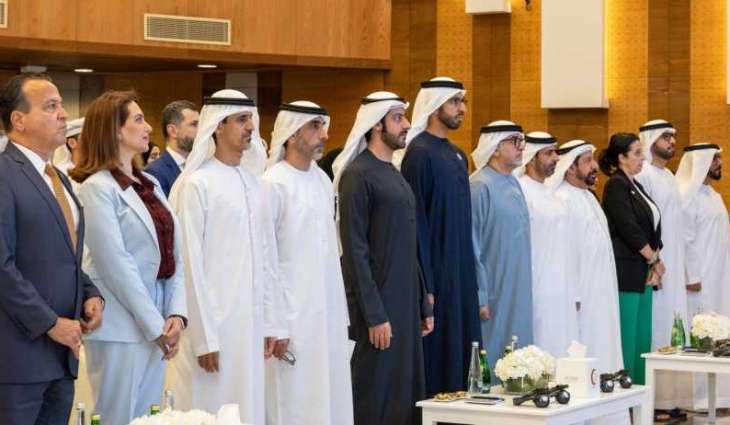ABU DHABI, (Pakistan Point News - 24th Feb, 2025) The Emirates Red Crescent (ERC) has hosted a Humanitarian Partnerships Forum at its headquarters in Abu Dhabi, organised by the Ministry of Foreign Affairs. The forum saw wide participation from the UAE humanitarian bodies, the private sector, and regional and international organisations.
The event was attended by Sheikh Shakhboot bin Nahyan Al Nahyan, Minister of State; Sheikha Dr. Moza bint Tahnoun Al Nahyan, Advisor at the Ministry of Foreign Affairs; and several officials from the Ministry and the ERC.
The forum covered topics related to establishing partnerships, sharing information among key humanitarian players in the UAE and Arab region, raising awareness of regional and international emergencies, and coordinating efforts among humanitarian partners, including the private sector, to ensure effective collaboration in addressing shared challenges in humanitarian crises.
In his opening speech, Ahmed Sari Al Mazrouei, Acting Secretary-General of the ERC, highlighted that the forum provided a valuable opportunity for dialogue and to shape future sustainability efforts in humanitarian work, following the legacy of the late Sheikh Zayed bin Sultan Al Nahyan.
This path has continued under the leadership of President His Highness Sheikh Mohamed bin Zayed Al Nahyan, and the support of His Highness Sheikh Mohammed bin Rashid Al Maktoum, Vice President, Prime Minister and Ruler of Dubai, and H.H. Sheikh Hamdan bin Zayed Al Nahyan, Ruler's Representative in Al Dhafra Region and Chairman of ERC.
He stressed that the UAE has long contributed to addressing urgent humanitarian needs, offering rapid response and care to people affected by conflicts and disasters.
Al Mazrouei acknowledged the significant challenges faced by humanitarian organisations, especially in light of global crises, with reports indicating that around 300 million people worldwide will require urgent humanitarian aid due to conflicts, climate emergencies, and other factors.
The forum's discussions emphasised strengthening partnerships, improving coordination, and exchanging knowledge to achieve more effective and innovative humanitarian action in a rapidly changing world.
Meanwhile, Sultan Mohamed Saeed Al Shamsi, Assistant Minister of Foreign Affairs for Development and International Organisations and Vice Chairman of the UAE Aid Agency, highlighted the UAE's commitment to bilateral, multilateral, and international partnerships in delivering aid.
He referenced the UAE's humanitarian efforts in response to multiple crises, including conflicts in Gaza, Sudan, and Ukraine, as well as natural disasters in Türkiye, Syria, Morocco, and Libya.
Al Shamsi underscored the role of collaboration in ensuring the effective delivery of aid, such as joint efforts with Egypt, which enabled the establishment of water desalination plants in Arish and the extension of pipelines to southern Gaza, providing clean water to 600,000 displaced individuals.
Sajeda Shawa, Head of the United Nations Office for the Coordination of Humanitarian Affairs (OCHA) Office in the UAE, emphasised the growing need for coordinated and effective humanitarian action in response to escalating conflicts and climate emergencies. She praised the UAE for its leadership in humanitarian efforts and called for continued innovation, collaboration, and inclusivity to tackle global humanitarian challenges.
The forum featured several sessions, including discussions on humanitarian coordination, food security in emergencies, and responses to vulnerable groups such as women and children. Participants from various organisations shared insights and strategies for improving humanitarian interventions.




